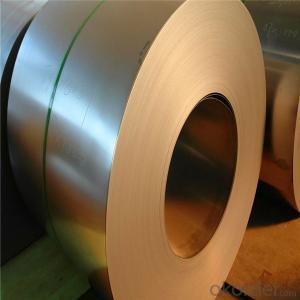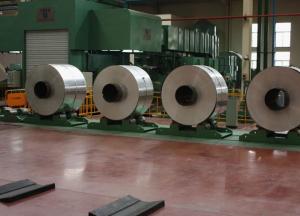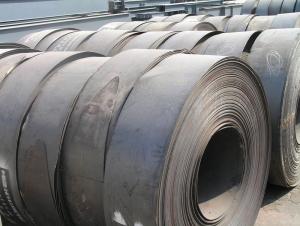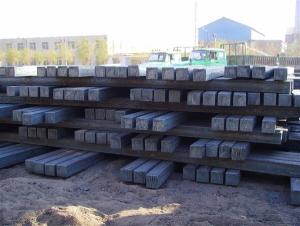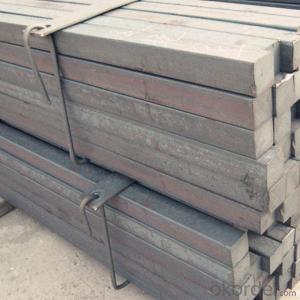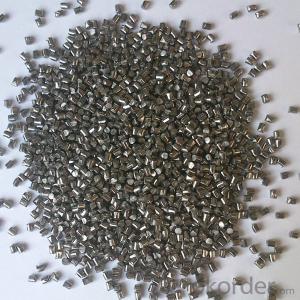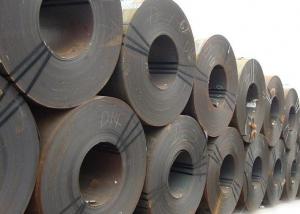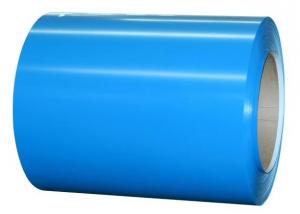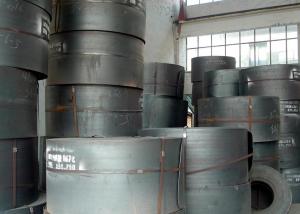Prime Quality Cold Rolled Steel Sheet/Coil Made in China
- Loading Port:
- China main port
- Payment Terms:
- TT OR LC
- Min Order Qty:
- 25 m.t.
- Supply Capability:
- 50000 m.t./month
OKorder Service Pledge
OKorder Financial Service
You Might Also Like
Item specifice
Prime Quality SPCC Cold Rolled Steel Sheet/coil
| Usage | Widely used to appliance,automobile industry or other decoration usage. |
| Certificate | ISO9001 |
| Packing Details | Wrapped by water proof paper and plastic film.Covered with iron sheet,strapped by steel strips to protect the damage under transportation. |
| Payment term | 30%T/T in advance, the balance would be paid against the product list of manufacturer before loading,or L/C at sight |
| Delivery | 25-30 days |
| Tolerance | As the standard required |
Brief Introduction
Cold rolled steel coil is steel that has been worked below its recrystallization temperature by passing it between a pair of rollers. Recrystallization temperature is the temperature at which grains in the lattice structure of the metal have been rearranged, leaving it free of strain and deformations. Cold rolled steel coil is pre-treated before being cold rolled with a process known as pickling, which uses strong acids to remove scale and other impurities. The cold rolled steel coil is then passed through rollers to reduce its thickness. Most cold rolling takes place in multiple passes and as the size of the cold rolled steel coil is further reduced, its strength and hardness both increase, but its ductility decreases. After cold rolling, heating the metal up in a process known as annealing can restore some of its ductility. The final cold rolled steel coil may be manufactured in the form of sheets, strips, bars, or other forms.
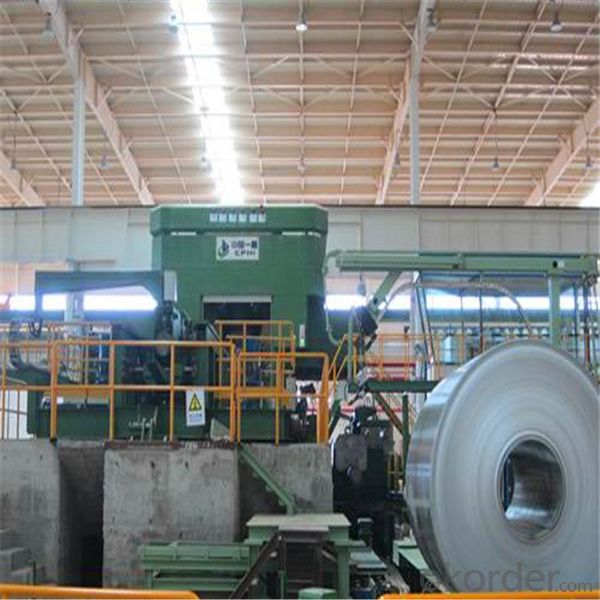
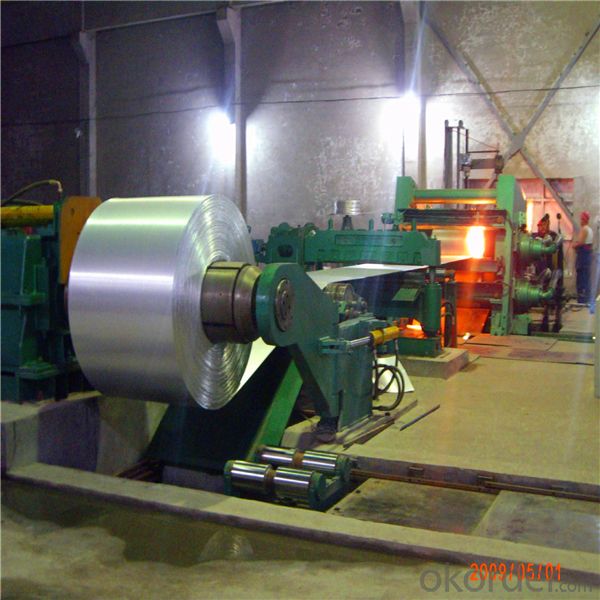
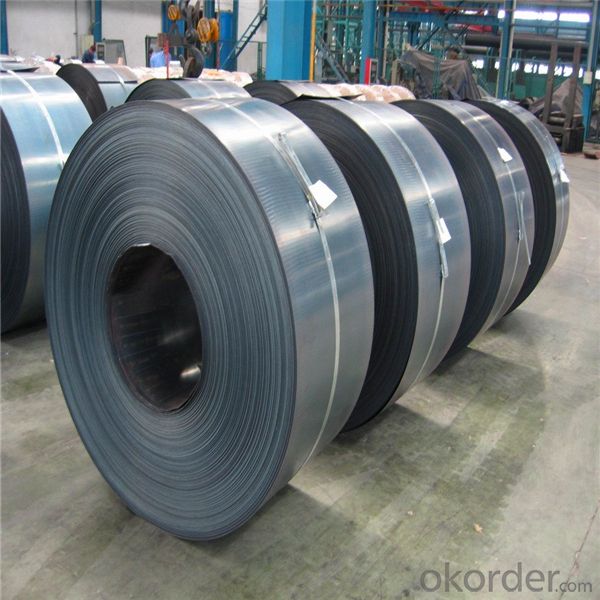
- Q:What are the different types of steel beams used in building structures?
- There are several different types of steel beams commonly used in building structures, including I-beams, H-beams, W-beams, and C-beams. These beams vary in shape and size, with each type designed to provide specific load-bearing capabilities and structural support. I-beams, for example, have a distinctive I shape and are widely used for horizontal support in buildings. H-beams, on the other hand, have a wider flange and are commonly used in heavy-duty applications. W-beams are similar to I-beams but have a wider flange, providing increased support for larger loads. C-beams, also known as channel beams, have a C-shaped cross-section and are often used for various structural and framing purposes. Overall, the choice of steel beam type depends on the specific requirements and design specifications of the building structure.
- Q:How is steel used in the manufacturing of consumer goods?
- Steel is commonly used in the manufacturing of consumer goods due to its strength, durability, and versatility. It is used to create various components and structures in products such as appliances, automobiles, furniture, tools, and electronics. Steel is essential for providing stability and support, ensuring the longevity and safety of consumer goods.
- Q:What are the properties of stainless steel that make it corrosion-resistant?
- Stainless steel is corrosion-resistant due to its high chromium content, which forms a protective oxide layer on its surface. This oxide layer acts as a barrier, preventing the metal beneath from coming into contact with corrosive elements in the environment. Additionally, stainless steel also contains other alloying elements such as nickel and molybdenum, which enhance its corrosion resistance further.
- Q:How does steel tube bending work?
- Steel tube bending works by applying force to a steel tube in a specific location, causing it to deform and bend into the desired shape. This force can be applied through various methods such as hydraulic or mechanical bending machines, which exert pressure on the tube to gradually bend it to the desired angle or curve. The process requires precision and expertise to ensure the tube retains its structural integrity and meets the required specifications.
- Q:What are the different types of steel chains and their uses?
- There are various types of steel chains, each designed for specific applications. Some common types include welded chains, roller chains, and stainless steel chains. Welded chains are known for their strength and are commonly used in lifting and towing applications. Roller chains are widely used in machinery and automotive industries to transmit power. Stainless steel chains are corrosion-resistant and are often used in environments where exposure to moisture or chemicals is a concern, such as in food processing or marine applications.
- Q:What are the safety considerations when working with steel products?
- When working with steel products, there are several safety considerations to keep in mind. Firstly, it is important to wear appropriate personal protective equipment (PPE) such as gloves, safety glasses, and steel-toe boots to protect against cuts, burns, and other potential hazards. Additionally, one should be aware of the weight and size of steel products, using proper lifting techniques and equipment to prevent back injuries. It is also crucial to maintain a clean and organized work area to minimize slips, trips, and falls. Lastly, proper training and understanding of the specific steel products being worked with, as well as the potential hazards associated with them, is essential for ensuring a safe working environment.
- Q:What are the properties of carbon steel for industrial use?
- Carbon steel is a popular choice for industrial use due to its excellent strength, durability, and affordability. It is primarily composed of iron and carbon, with varying levels of other alloying elements. Carbon steel possesses high tensile strength, making it suitable for applications that require heavy loads or structural integrity. It also exhibits good machinability and weldability, allowing for easy fabrication and modification. Additionally, carbon steel can be hardened and tempered to enhance its hardness and wear resistance. However, it is susceptible to corrosion, so appropriate protective coatings or treatments are often applied in industrial settings to prevent rust and degradation.
- Q:What are the different types of steel coatings and their applications?
- There are several types of steel coatings commonly used in various applications. These include galvanized coatings, which provide corrosion resistance and are commonly used in outdoor structures and automotive parts. Another type is powder coating, which offers durability and aesthetics, often applied to appliances, furniture, and architectural components. Additionally, epoxy coatings provide excellent chemical resistance and are used in industries like food processing and water treatment. Lastly, thermal spray coatings, such as metalizing or ceramic coatings, are applied to enhance wear resistance and thermal insulation in aerospace, automotive, and industrial applications.
- Q:How are steel products used in the chemical industry?
- Steel products are widely used in the chemical industry for various applications such as storage tanks, pipes, and equipment due to their high strength, durability, and resistance to corrosion. These steel products help store and transport chemicals safely and efficiently, ensuring the integrity of the substances being handled. Additionally, steel is often used in the construction of chemical plants and refineries, providing a stable and secure infrastructure for chemical processes.
- Q:How is steel used in the production of musical instruments?
- Steel is commonly used in the production of musical instruments due to its strength, durability, and ability to produce a clear and resonant sound. It is typically used for strings, such as guitar and piano strings, as well as for the construction of various percussion instruments like drums and cymbals. Additionally, steel is often used in the manufacturing of certain wind instruments, such as saxophones and trumpets, where its malleability allows for precise shaping and tuning of the instrument.
1. Manufacturer Overview |
|
|---|---|
| Location | |
| Year Established | |
| Annual Output Value | |
| Main Markets | |
| Company Certifications | |
2. Manufacturer Certificates |
|
|---|---|
| a) Certification Name | |
| Range | |
| Reference | |
| Validity Period | |
3. Manufacturer Capability |
|
|---|---|
| a)Trade Capacity | |
| Nearest Port | |
| Export Percentage | |
| No.of Employees in Trade Department | |
| Language Spoken: | |
| b)Factory Information | |
| Factory Size: | |
| No. of Production Lines | |
| Contract Manufacturing | |
| Product Price Range | |
Send your message to us
Prime Quality Cold Rolled Steel Sheet/Coil Made in China
- Loading Port:
- China main port
- Payment Terms:
- TT OR LC
- Min Order Qty:
- 25 m.t.
- Supply Capability:
- 50000 m.t./month
OKorder Service Pledge
OKorder Financial Service
Similar products
New products
Hot products
Related keywords
